
Latest Coronavirus Disease COVID 19 News and Research
Gender, age, and education level predict where people turn for COVID-19 information
Gender, age, education level, and political affiliation predict where people turn for information about COVID-19--and what sources they use and trust is linked to differing beliefs about the pandemic, according to a new study by NYU School of Global Public Health researchers.
People’s trust in media is associated with COVID-19 prevention behaviors
Whether someone wears a mask, practices physical distancing or performs other behaviors to prevent COVID-19 infection may be linked to what media outlets they trust.
Transplantation of pig hearts may solve chronic shortage of donor organs
The goal of harvesting hearts from pigs to solve the chronic shortage of these donor organs appears to be in reach, according to a new scientific review by researchers at Massachusetts General Hospital (MGH).
86 percent of the UK's COVID-19 patients have no symptoms
Many people who contract the severe acute respiratory syndrome coronavirus 2 (SARS-CoV-2), the virus that causes the coronavirus disease (COVID-19), develop only mild and moderate symptoms. A small fraction of those infected develop severe symptoms, which usually occur in people who are at higher risk due to comorbidities.
University of Minnesota Medical School chosen as ‘Capacity Building Center’ for national network
The University of Minnesota Medical School's Department of Laboratory Medicine and Pathology has been selected to participate in a new national network dedicated to serological, or antibody, sciences as one of four Capacity Building Centers in the country.
Clear and unequivocal evidence we should washing our hands during COVID-19
The study shows that Americans are washing their hands much more they did before the coronavirus pandemic. However, the groups who are less likely to remember to wash their hands on multiple occasions were white people, men, and those between the ages of 18 and 24.
Mass production of SARS-CoV-2 ORF8 protein using a chemical-inducible system in tobacco BY-2 cells
Researchers from the Japan Advanced Institute of Science and Technology (JAIST) and Ishikawa Prefectural University, Japan, recently attempted to synthesize the ORF8 protein with the help of a chemical-inducible protein production system using tobacco BY-2 cells. This study has been published demonstrated in the preprint server, bioRxiv.
Virginia Tech to build a cyberinfrastructure for wastewater antibiotic-resistant gene monitoring
Antibiotic resistance is a grand challenge of the 21st century. According to the U.S. Centers for Disease Control and Prevention, antibiotic resistance rates are increasing globally, with an estimated 35,000 related deaths per year in the United States in 2019, compared to 23,000 in 2013.
Mount Sinai to receive more than $7.3 million as part of NCI's new Serological Sciences Network
Researchers from the Icahn School of Medicine at Mount Sinai will receive more than $7.3 million from the National Cancer Institute as part of the NCI's new Serological Sciences Network (SeroNet), one of the largest coordinated national efforts to study immunology and SARS-CoV-2, the virus that causes COVID-19.
NIH clinical trial to test a combination treatment regimen for COVID-19
A clinical trial to test the safety, tolerability and efficacy of a combination treatment regimen for coronavirus disease 2019 (COVID-19) consisting of the antiviral remdesivir plus a highly concentrated solution of antibodies that neutralize SARS-CoV-2, the virus that causes COVID-19, has begun.
SARS-CoV-2 survives on human skin for 9 hours
Japanese researchers have now studied the survival possibilities of the flu virus and the SARS-CoV-2 on human skin. Their study titled, "Survival of SARS-CoV-2 and influenza virus on the human skin: Importance of hand hygiene in COVID-19," was published in the latest issue of the journal Clinical Infectious Diseases.
Severe COVID-19 during pregnancy associated with adverse maternal and neonatal outcomes
Pregnant women with severe or critical COVID-19 and their unborn infants face increased health risks before and after delivery, a Rutgers study finds.
Technological breakthrough may increase COVID-19 testing, reduce wait time and costs
The U.S. Food and Drug Administration has granted emergency use authorization for scientists at UCLA Health to begin using a new method of COVID-19 detection using sequencing technology called SwabSeq.
Detection of SARS-CoV-2 viral persistence in built environments
In a recent paper in an open-access journal, mSystems, published by The American Society for Microbiology, Ceth W. Parker et al. show challenges in recovering the virus, change in infectivity, and the case of viral persistence in built environments.
Scientists refine SARS-CoV-2 protein structures
An international team of scientists has developed computational models to re-analyze and validate experimentally-derived publicly available macromolecular structures of severe acute respiratory syndrome coronavirus 2 (SARS-CoV-2).
Young doctor succumbs to COVID, one of the south’s many health workers lost
It took Carrie Wanamaker several days to connect the face she saw on GoFundMe with the young woman she had met a few years before.
In debate, Pence and Harris offer conflicting views of nation’s reality
The Trump administration's pandemic response: decisive action that saved lives, or the greatest failure of any presidential administration? During Wednesday's vice presidential debate, Vice President Mike Pence and the Democratic challenger, Sen. Kamala Harris of California, offered drastically different takes — from behind plexiglass screens — on how the president has handled the COVID-19 crisis.
Overreaction of the immune system could be linked to severe COVID-19 cases
Samples from the lungs of patients show a runaway immune system reaction could be one mechanism behind severe COVID-19 cases.
Face masks far more protective against COVID-19 than face shields, CDC experts
Researchers from the Centers for Disease Control and Prevention (CDC) have conducted a study showing that face masks and neck gaiters appear to be much more effective than face shields at reducing the expulsion of respiratory aerosols that could potentially transmit severe acute respiratory syndrome 2 (SARS-CoV-2).
Neutralizing responses to infection relatively common in COVID-19
A new study has shown that severe coronavirus disease 2019 (COVID-19) is associated with unique B cell receptor (BCR) signatures and multiclonal neutralizing responses against the causative agent severe acute respiratory syndrome coronavirus 2 (SARS-CoV-2).
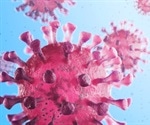

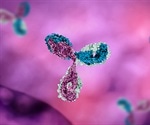
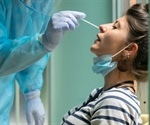
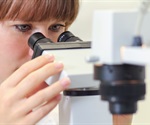
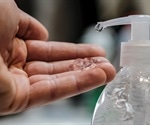
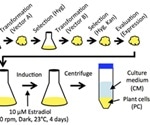
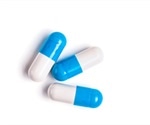
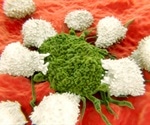
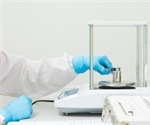
_c9dc4e9a42b94488b5a389f660ccbabc-150x125.jpg)
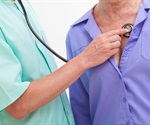
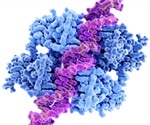
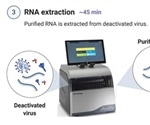
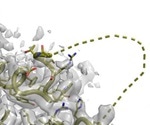

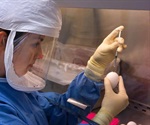
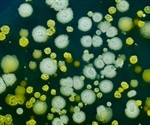
_a4a9ff19499f495a9fa138e37bea5b8b-150x125.jpg)
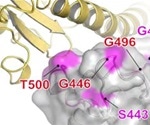
































No hay comentarios:
Publicar un comentario